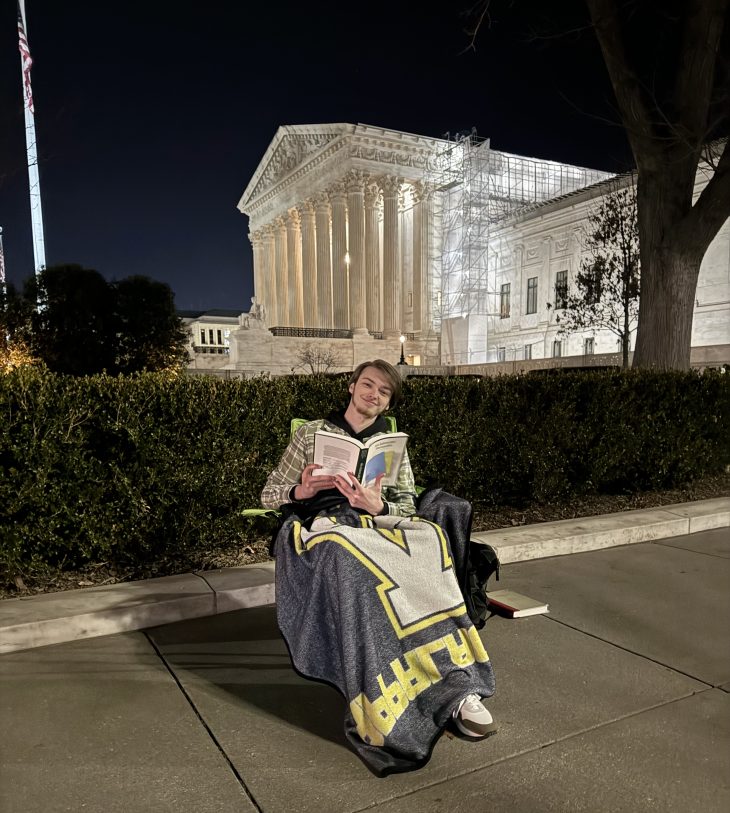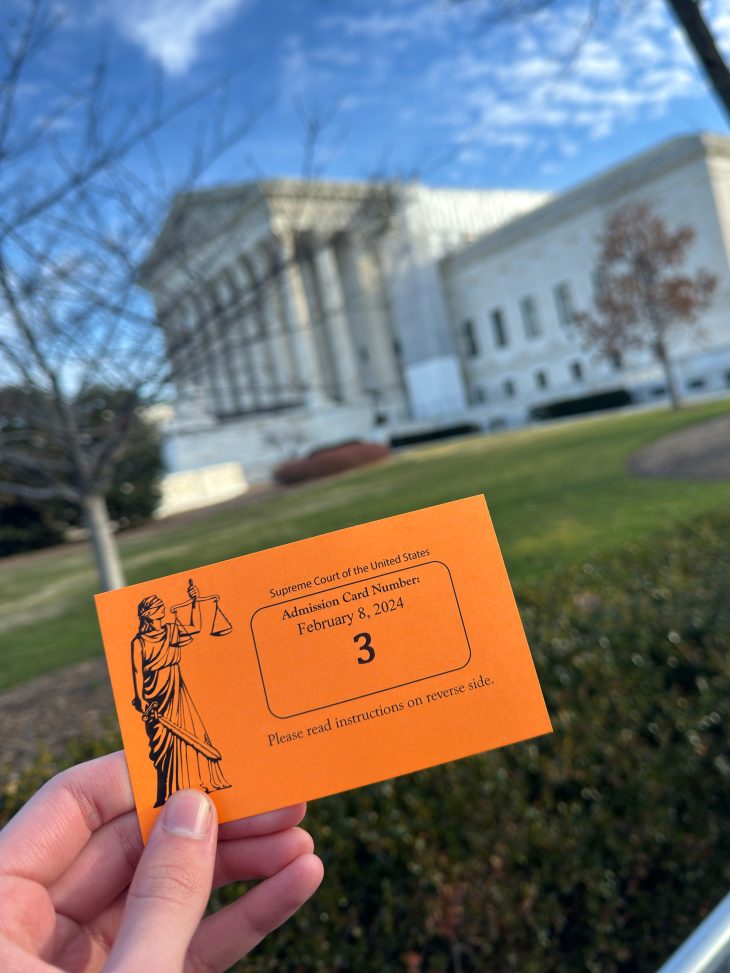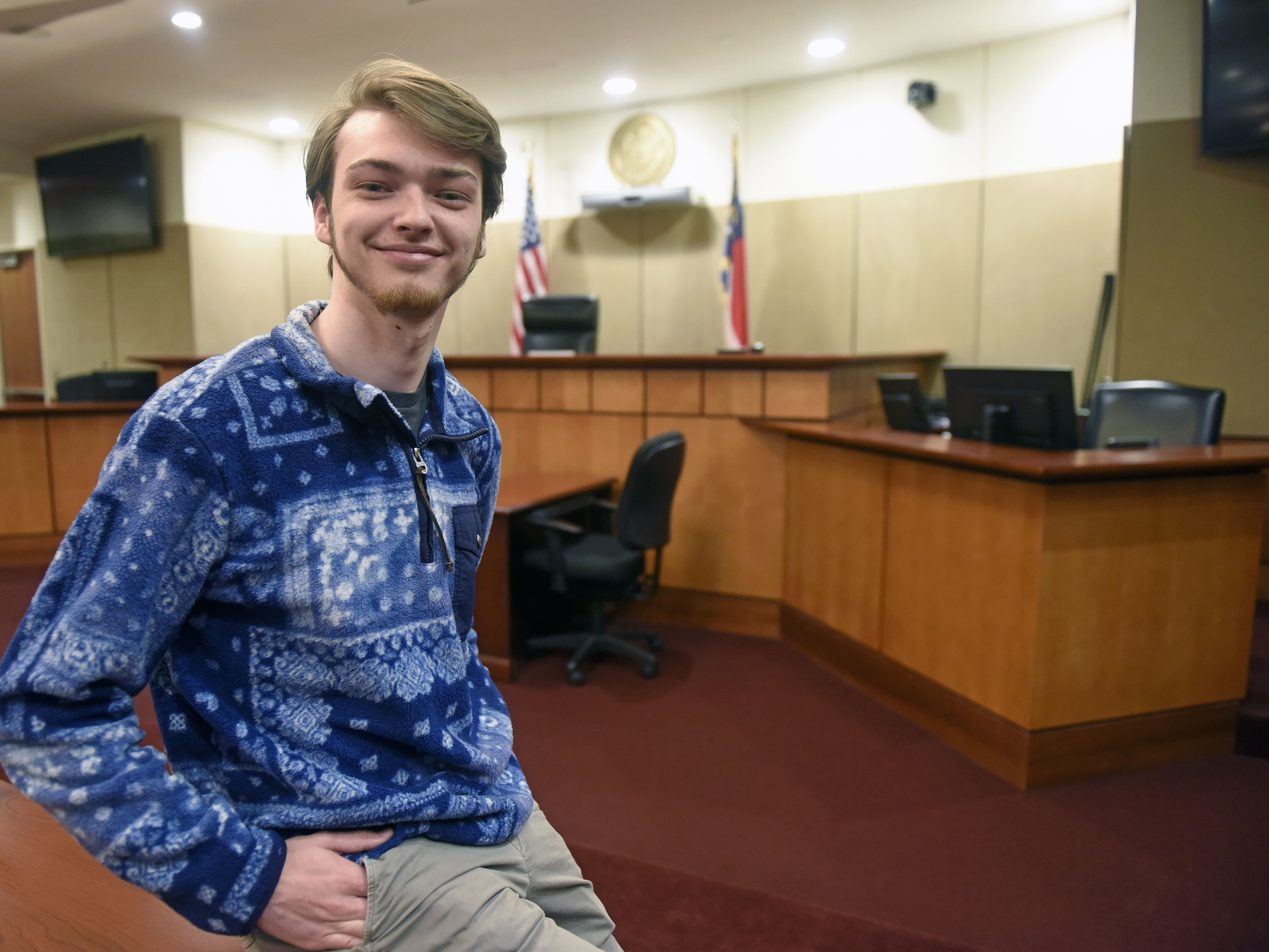Elon Law’s Landon Eckard L’25 is still in awe of his “surreal” experience attending oral arguments before a U.S. Supreme Court that will decide whether Colorado erred in banning Donald Trump from its ballots.
To be clear, Landon Eckard didn’t want to skip class for two days, but if that was what it took to watch history unfold in person, so be it.
Watching history also meant packing a lawn chair, snacks, water bottles, portable battery packs, and an Appalachian State University blanket. It gets cold in the winter evenings on the streets of Washington, D.C.
Eckard traveled this month to the nation’s capital to attend oral arguments in Trump v. Anderson, a case before the U.S. Supreme Court where justices will soon decide whether Colorado erred in banning Donald Trump from its statewide ballots due to the Insurrection Clause of the Fourteenth Amendment.

Eckard departed Greensboro after Tuesday classes, arrived in Washington that night, then waited outdoors for the opportunity to observe the landmark case set for the morning of Thursday, Feb. 8, 2024. He was third in a line where about 40 people gained entry.
“I wanted to be there for a moment that was going to be big for the country,” said Eckard, who encourages classmates to observe oral arguments if they ever have the opportunity. “It’s a cornerstone of my legal career so far. ‘Surreal’ is the best word to describe it.”
Eckard completed work for his legal writing, criminal law, and contracts courses while camped outside the courthouse. The self-described “legal nerd” networked with attorneys in the waiting line. He swapped contact information and connected on LinkedIn with law students from Georgetown and American who also made it into the courtroom.
And he spoke with the news media. Lots of media. USA Today. The New York Times. The Associated Press. The Washington Post. C-SPAN. Everyone asked the same question: why are you here?
“They didn’t really ask my opinion on the case, which was surprising,” Eckard explains. “I told them I’m a law student and just really want to learn by observation, and I thought this experience would be the best opportunity to do so.”

Elon Law professors encouraged his adventure. “This was a once-in-a-lifetime opportunity. And, honestly, it was going to be an in-class writing session that day,” said Associate Professor Sarah Ochs, who teaches Eckard’s section of Legal Method & Communication. “He was just having his writing session in the presence of the Supreme Court justices. Landon’s one of the best students I’ve ever had.”
Eckard predicts the court will rule in favor of Trump and overturn Colorado’s ballot ban in a 6-3 or 7-2 decision, though he wouldn’t be completely surprised if all nine justices eventually agree on the outcome in a series of concurring opinions. Just don’t call the process partisan.
“I know a lot of people look at the justices from a political standpoint,” said Eckard, a North Carolina native who wants to pursue a career in juvenile criminal defense and constitutional appellate advocacy. “I look at them as people who are trying to do what’s right for the country. They all believe that the Constitution is here to defend our democracy, and I think they’re doing the best they can to uphold it regardless of their respective legal philosophies.”
Did You Know?
- As a child, Eckard wanted to study meteorology. A high school competition in AP Government, where Eckard studied and prevailed in a class debate tournament using Lemon v. Kurtzman, a 1971 Supreme Court case involving public funding for non-secular schools, “planted the seeds” of his interest in the legal profession.
- Eckard jokingly credited his undergraduate studies at Appalachian State University in the mountains of North Carolina for girding him for cold temperatures while waiting in line.
- Eckard was the first in his family to attend and graduate college, and he celebrates accomplishments with his grandmother, with whom he shares a birthday.



